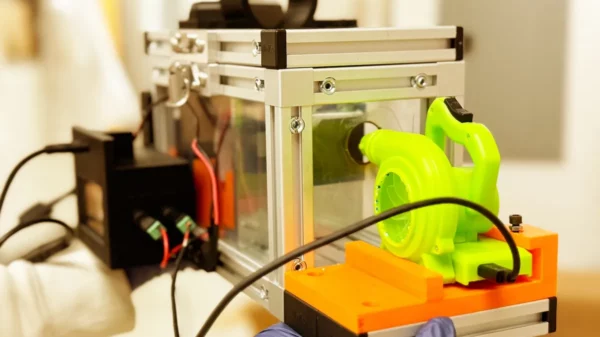The ugly situation with Ukraine and NATO has not stopped Russia from prioritizing the protection of its citizens against cancer.
In mid-December, the Russian Ministry of Health announced that it has developed an mRNA shot for the deadly disease group that it will begin administering to residents this year. It will be free of charge, the Kremlin ministry says.
However, due to a complete absence of clinical trial data or any peer-reviewed evidence about its efficacy, scientists and researchers are skeptical about the announcement. Most publications reported on the news without any critical analysis while some recognized the lack of information.
“Until we see data from a clinical trial, there has to be skepticism about this,” Kingston Mills, a renowned Irish immunologist from Trinity College Dublin, told Newsweek in December. “Is this a universal vaccine for all cancers? I’d be very skeptical of that. I think it couldn’t be.”
Positive pre-clinical results confirmed, but nothing else
Director of the nation’s Gamaleya National Research Center for Epidemiology and Microbiology, Alexander Gintsburg, told Russian state media that pre-clinical studies showed that the vaccine “suppresses tumour development and potential metastases (cancer spread),” but that is evidently not enough data to start jabbing citizens right away.
“Russia has remained mum about the vaccine specifications,” Interesting Engineering writer, Mrigakshi Dixit, said. “Various aspects of this vaccine have not been disclosed including trial results, the specific cancers targeted by the vaccine, its efficacy, dosage, and even its official name.”
The news follows Vladimir Putin announcing that his researchers had been making substantial progress with the vaccine’s development in February. Now, the world awaits additional updates about a potentially groundbreaking medical achievement. A shot that could protect against all cancers would be a game changer.
Read more: Breath Diagnostics onboards new president and closes critical financing
Read more: Breath Diagnostics pioneers novel lung cancer breath test
Not the only cancer vaccine
Although not specifically aimed at targeting cancer, the human papillomavirus (HPV) vaccine is 99 per cent effective at preventing cervical cancer in women. A representative from the Health Department of Northwest Michigan discussed this in an interview on Thursday.
In mid-2024, the first international lung cancer vaccine trial commenced at 34 sites throughout seven countries. Developed by BioNTech SE – ADR (NASDAQ: BNTX), it too utilizes mRNA technology. Data is yet to be published.
And on a more recent note, Washington University’s medical school in St. Louis had had success in using a vaccine against aggressive breast cancer in a small clinical study. It made an announcement about it in November.
“Following treatment, 14 of 18 patients showed immune responses to the vaccine and, after three years, 16 patients remained cancer-free,” WashU Medicine’s science writer, Julia Evangelou Strait, explained.
This research is encouraging as the fight against cancer rages throughout the globe.
rowan@mugglehead.com














